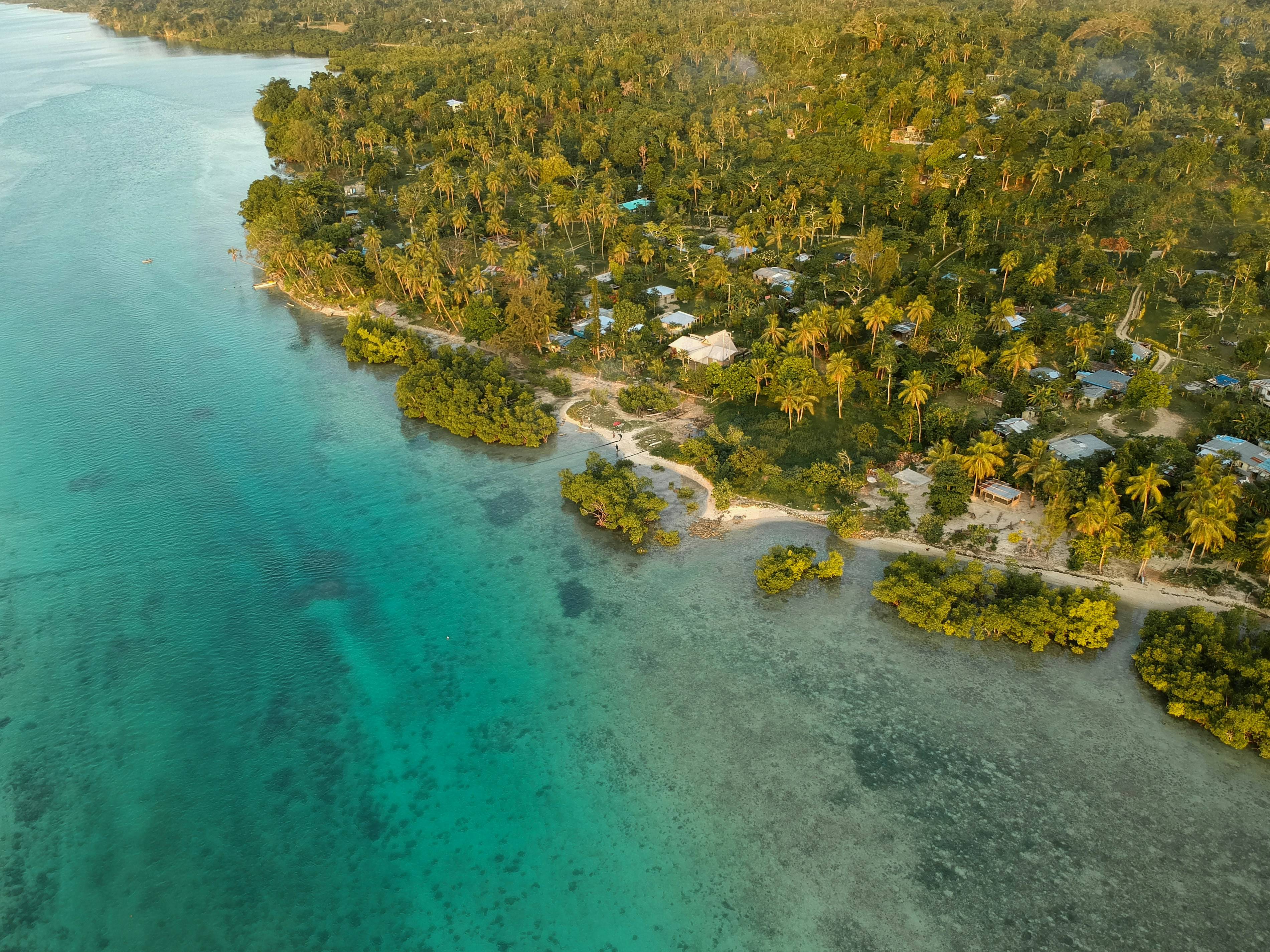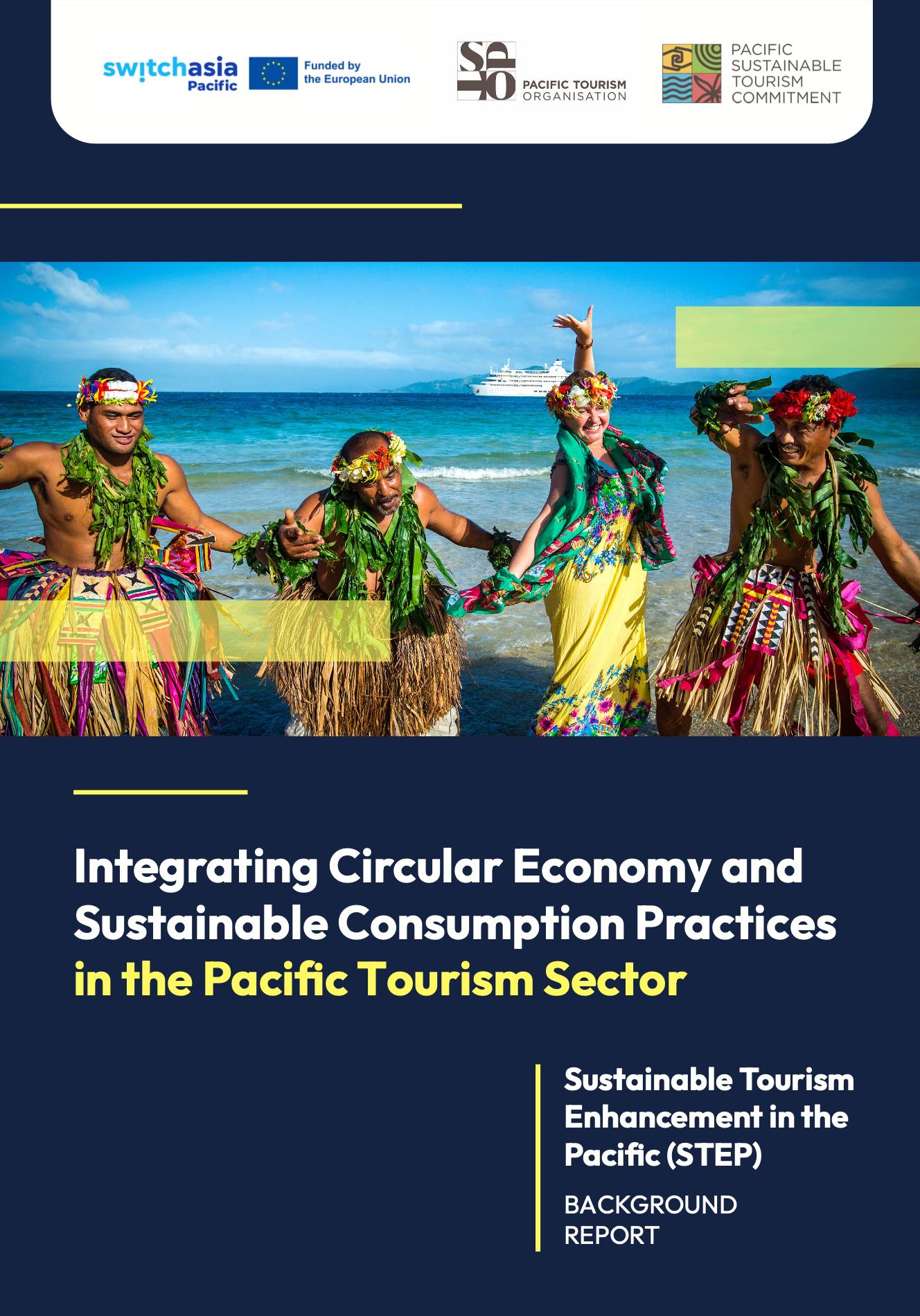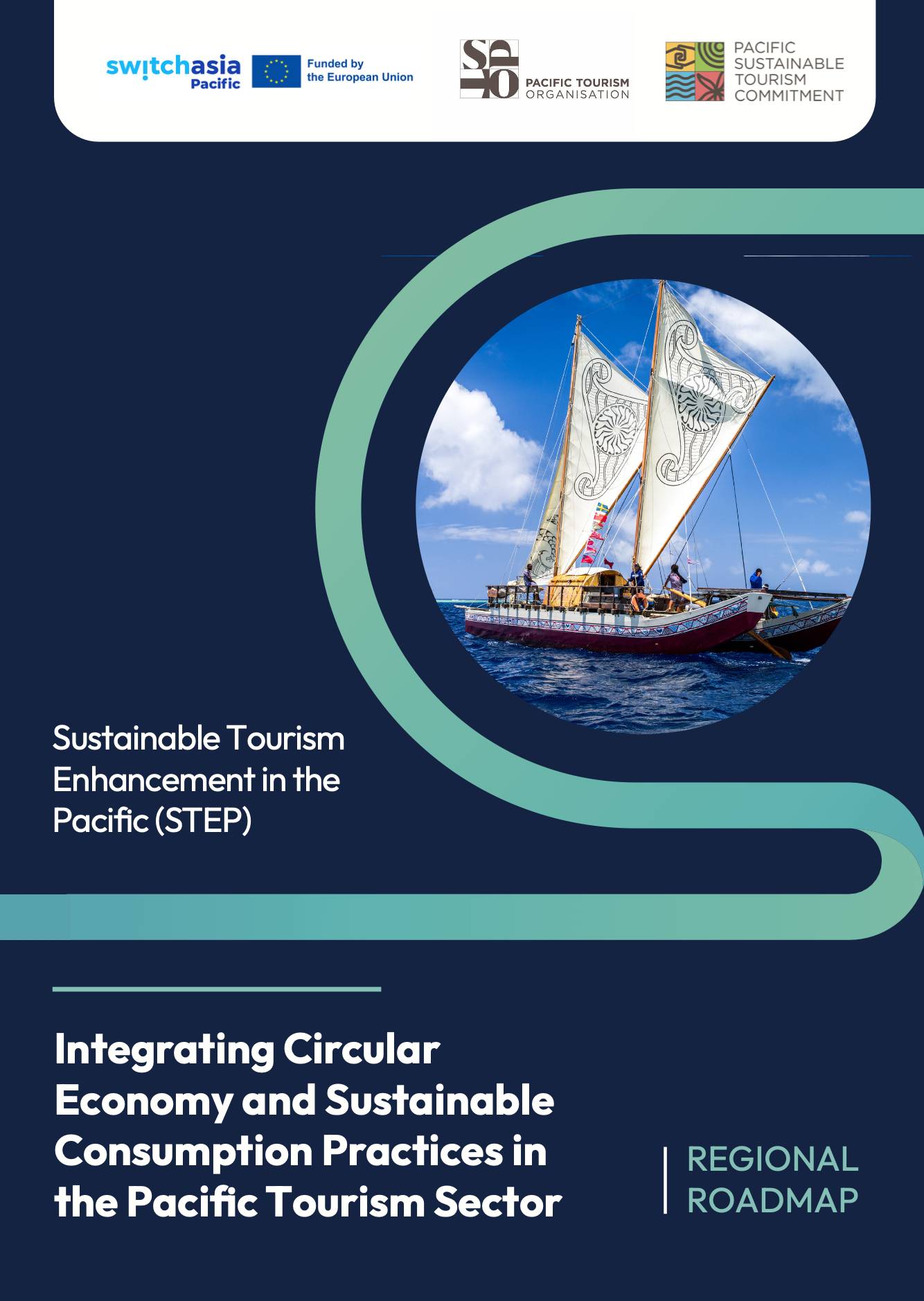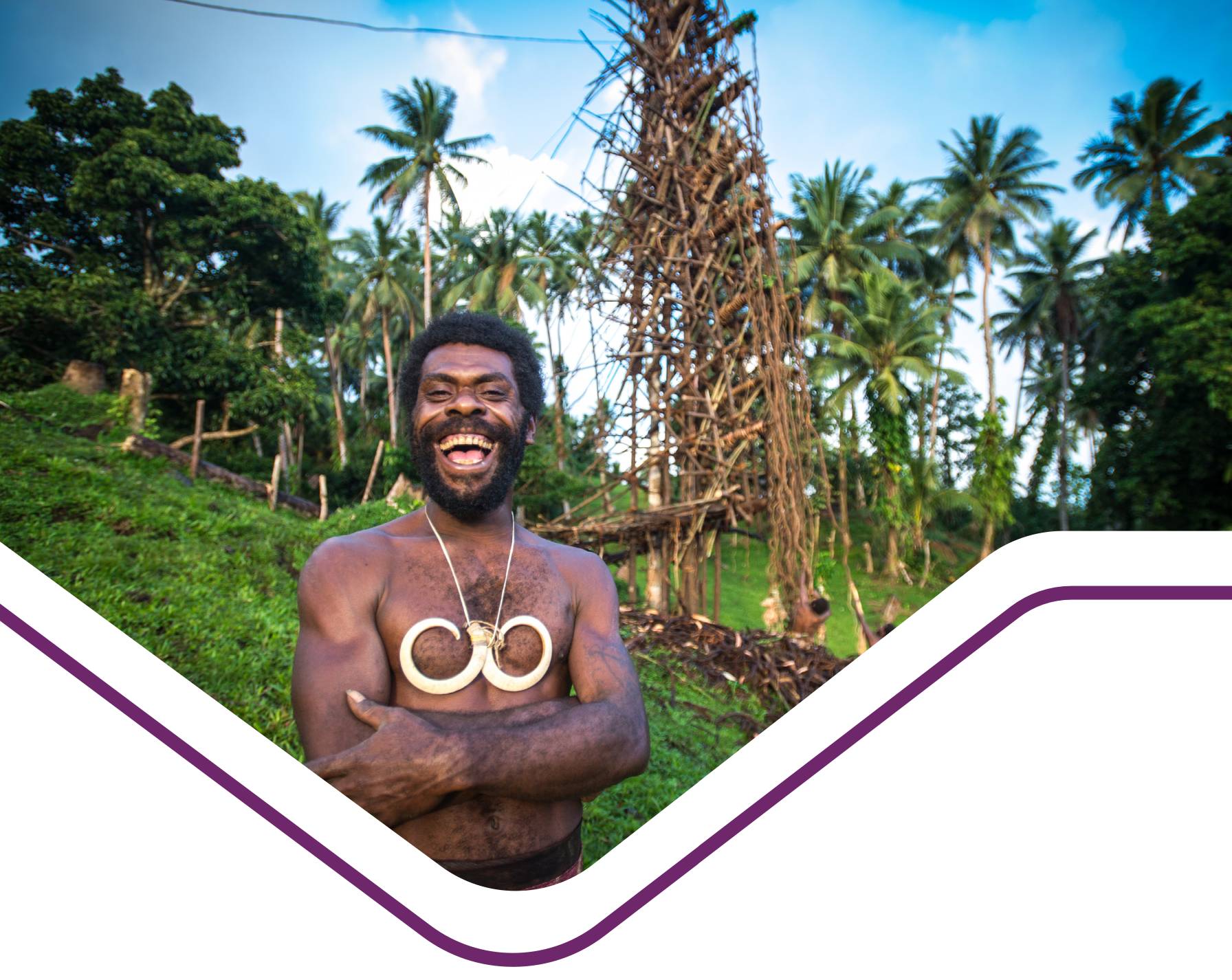
National SCP context and Connection to the Global Agenda: waste, food security and tourism
Vanuatu 2030: The People's Plan, the country's highest-level policy framework, is the National Sustainable Development Plan (NSDP) for the years 2016 to 2030. This framework is consistent with the 2030 Agenda for Sustainable Development and the Pacific Roadmap for Sustainable Development. [1] Vanuatu launched the first Voluntary National Review report in 2019, which covered SDG12, especially on the Gudfala Kakae Policy[2] and Slow Food Program[3] to promote food storage and preservation on aelan kakae[4], offering strong support in terms of fostering sustainable consumption and production patterns. [5] Additionally, the government launched the Vanuatu National Fisheries Sector Policy 2016-2031[6], Vanuatu Agriculture Sector Policy 2015 - 2030[7], Sustainable Tourism Policy 2019 - 2030[8] (VSTP), the Vanuatu Sustainable Tourism Strategy 2021-2025 (VSTS), and National Waste Management and Pollution Control Strategy and Implementation Plan 2016 - 2020[9].
Challenges
- Vanuatu has one of the highest population growth rates in the region, with growing demand for public services[10].
- One of the fastest-growing economies in the Pacific region has led to a dramatic increase in waste due to a lack of proper waste management.[11]
- Institutional fragmentation, limited compliance mechanisms, and uneven access to finance, training, and infrastructure, continue to constrain the pace to sustainability transition
- Facing food insecurity due to a rapid increase in imported foodstuffs and a decrease in local production because of landlessness, lack of improved farming skills, soil infertility, climate-vulnerable varieties of crops, and difficulties associated with accessing credit.7
Priority sectors
- Sustainable agriculture, fisheries, and tourism industries through innovation, value addition, and market access, while enhancing resilience to natural disasters and climate change impacts.
- Enhancing integrated farming systems and engaging in agricultural activities that range from subsistence farming to smallholder farming of coconuts and other cash crops.7
- Promoting Aelan Kakae practices as a key component of a sustainable and nutritionally balanced diet in the country.2
- Sustainable tourism planning and zoning can provide an effective tool for economic growth. Along with using local architecture and materials in construction, this approach offers visitors a unique experience.8
- Supporting the revision and institutionalisation of national minimum standards for food and tourism, to raise compliance and quality across the sectors while embedding circularity and sustainability principles and incentives for certification
- Enhancing the resilience of agrifood and tourism infrastructure, lowering environmental impact, and preserving Vanuatu’s cultural identity, with relevant toolkits and incentives for MSMEs and Community-based Enterprises
Opportunities
- Supporting the effective implementation of the Vanuatu National Food Pathway on the Gudfala Kakae Policy strengthens the sustainable food system by promoting an environment that enables proper coordination of policy implementation, financing, capacity building, and cross-sectoral contributions.[12]
- Supporting the improvement of access to appropriate technology, knowledge, and skills in food production, preservation, and storage.5
- Enhancing traditional agricultural practices and integrated farming systems, while focusing on disaster risk reduction and climate change, strengthens the food system.5
- Supporting the implementation of Vanuatu Recyclers and Waste Management[13] to facilitate communication between members, governments, and international initiatives.
- Encouraging the adoption of circular economy principles and sustainable consumption and production to enhance sustainable tourism planning and zoning, as well as green public procurement, to strengthen the use of local architecture and materials in construction.
- Developing national sustainable standards for agrifood and tourism, aligning with relevant national goals and regional standards for collective impact
[1] Government of Vanuatu. (2016). Vanuatu 2030 The People’s Plan National Sustainable Development Plan 2016 - 2030
[2] Government of Vanuatu. (2017). Vanuatu National Gudfala Kakae Policy 2017 - 2030 Implementation, Monitoring and Evaluation Matrix
[3] Vanuatu Cultural Centre. (2019). Maewo Siloa Slow Food Festival
[4] Best Country. (2019). Cuisine of Vanuatu
[5] Government of Vanuatu. (2019). first Voluntary National Review
[6] Government of Vanuatu. (2016). Vanuatu National Fisheries Sector Policy 2016 - 2031
[7] Government of Vanuatu. (2015). Vanuatu Agriculture Sector Policy 2015 - 2030
[8] Government of Vanuatu. (2019). Sustainable Tourism Policy 2019 - 2030
[9] Government of Vanuatu. (2016).National Waste Management and Pollution Control strategy and Implementation Plan 2016 - 2020
[10] United Nations. (n.d.). Vanuatu
[11] UNEP. (2019).Vanuatu: overcoming challenges of booming waste and unchecked chemical importing
[12] Daily Post. (2022). Director Ravo urges UN FAO to support Vanuatu’s Agrifood Systems Transformation





